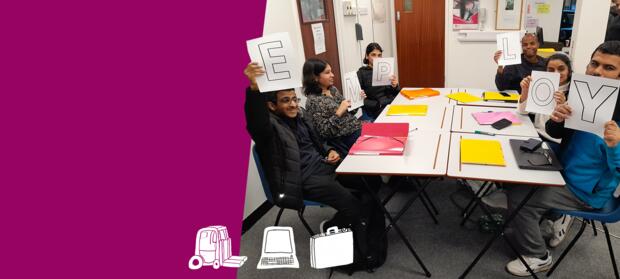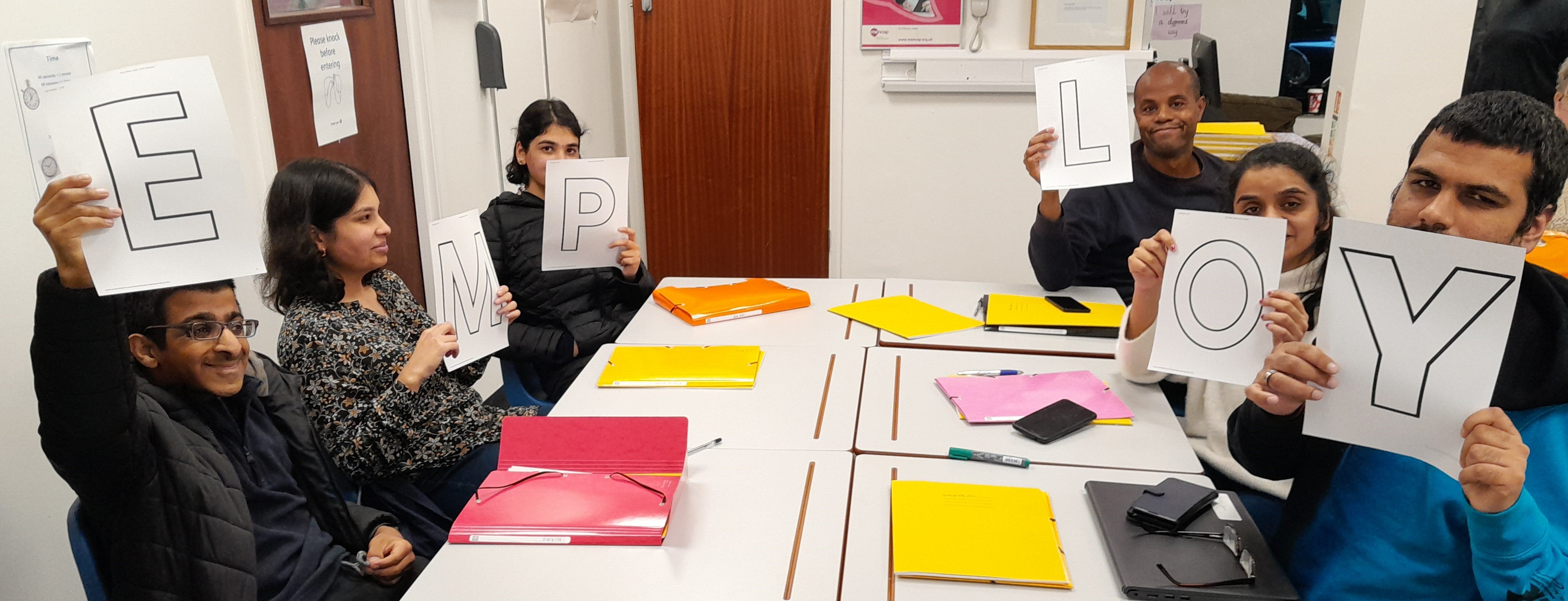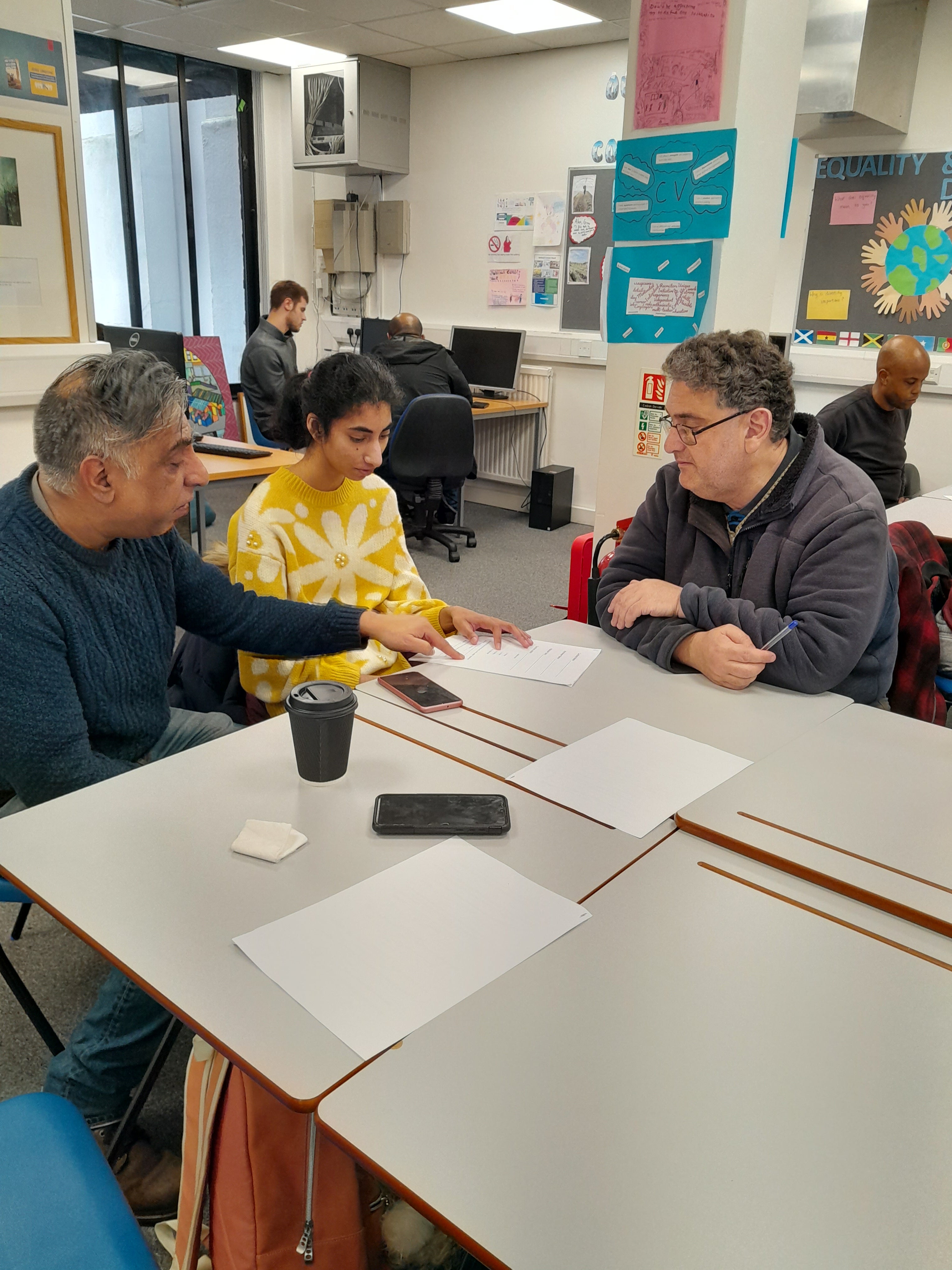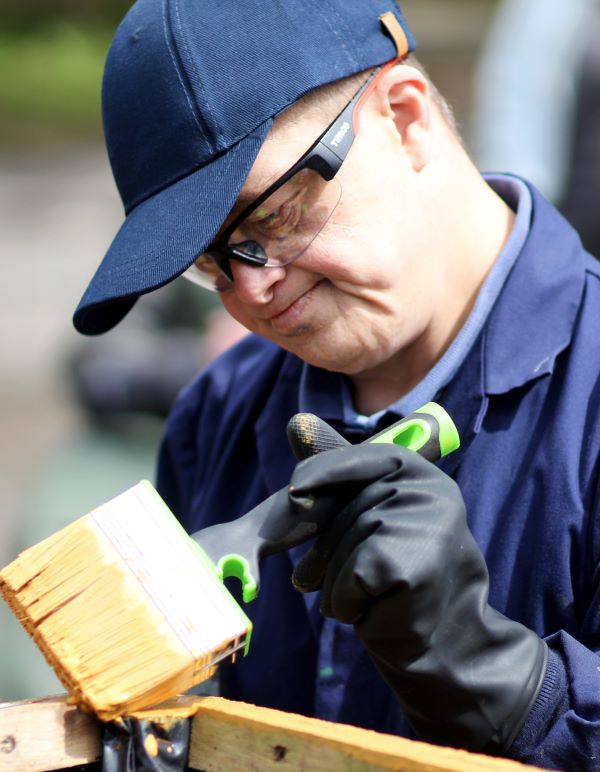Employ Me gives the people Mencap support the skills to get work
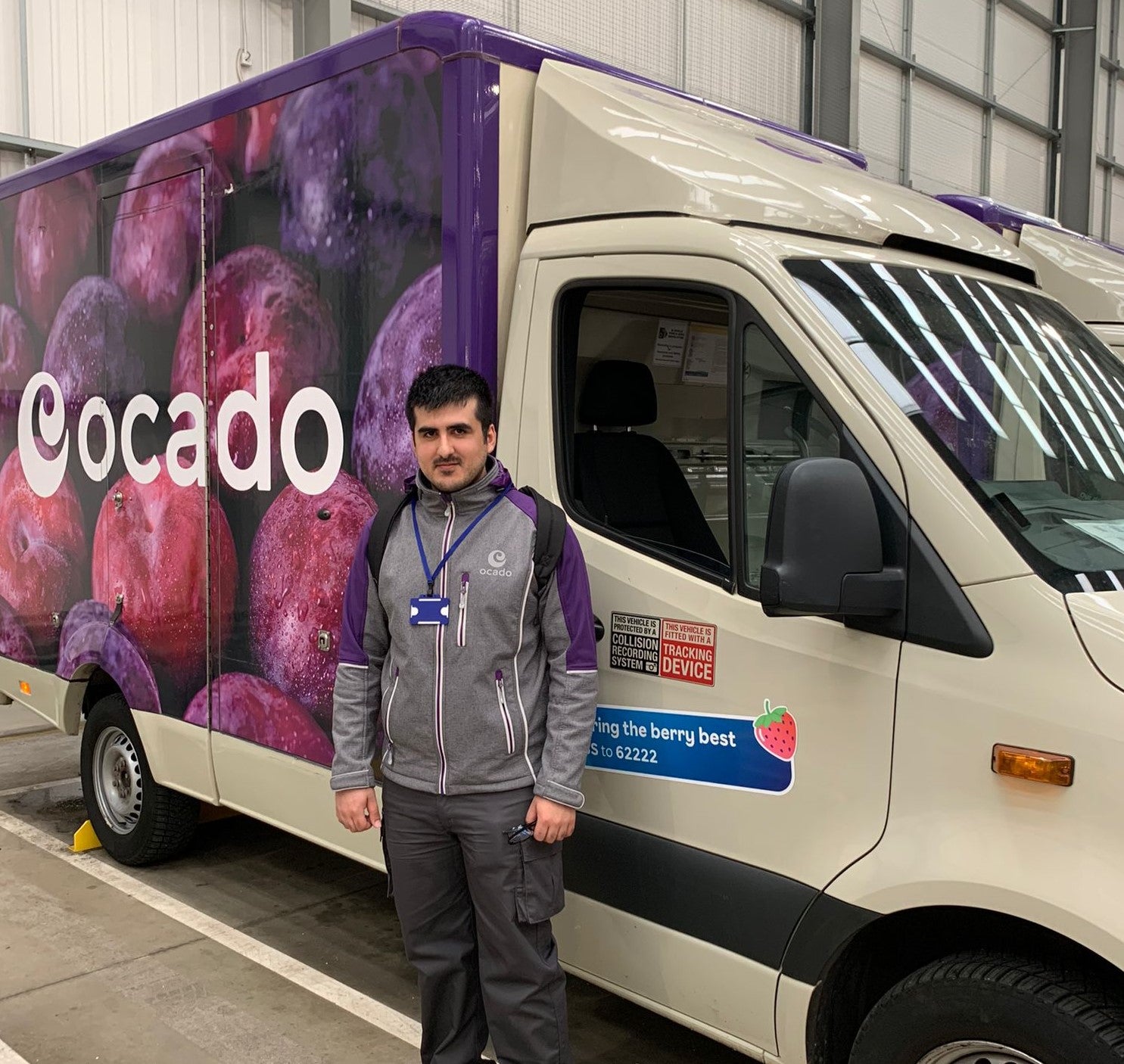 |
We believe that all people with a
learning disability
 A learning disability is to do with the way someone's brain works. It makes it harder for someone to learn, understand or do things.
have the right to work.
A learning disability is to do with the way someone's brain works. It makes it harder for someone to learn, understand or do things.
have the right to work.
We also believe that most people can work if they have the right support and the right opportunities.
Mencap's Employ Me programmes help people learn the skills to get them ready for other supported
employment
 Employment means having a job.
like supported internships. In some cases they can also help people move directly into paid work.
Employment means having a job.
like supported internships. In some cases they can also help people move directly into paid work.
We are currently looking to fund more Employ Me programmes. If you are a school,
local authority
 A local authority is also called a
council
A local authority is also called a
council
 A council is also called a local authority. They are a group of people who make decisions about some of the things in the area where you live. These include: schools,
social care
A council is also called a local authority. They are a group of people who make decisions about some of the things in the area where you live. These include: schools,
social care
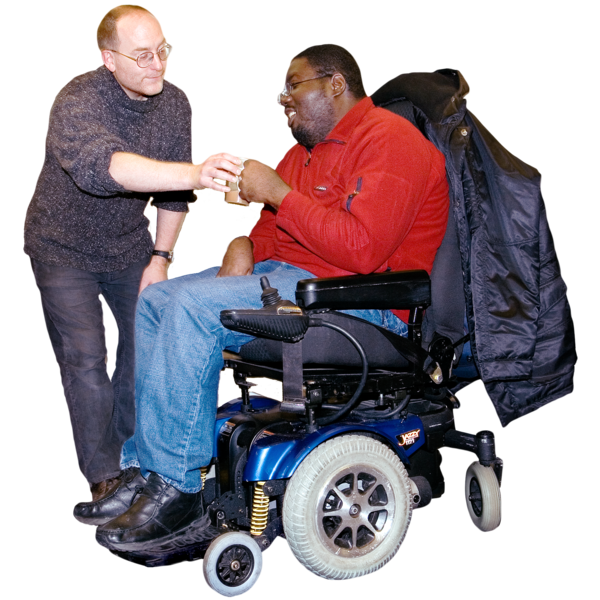 Social care means the services that give care and support to people who need it.
(support for people), parks and dustbin collection.
. They are a group of people who make decisions about some of the things in the area where you live like schools, social care (support for people), parks and dustbin collection.
or other type of funder and would be interested in supporting this work, then please read about our different models below and get in touch.
Social care means the services that give care and support to people who need it.
(support for people), parks and dustbin collection.
. They are a group of people who make decisions about some of the things in the area where you live like schools, social care (support for people), parks and dustbin collection.
or other type of funder and would be interested in supporting this work, then please read about our different models below and get in touch.
There are five different Employ Me programmes
Each one can be funded through a mix of local authorities, schools and grant givers.
Supported employment
Many programmes available to people with learning disabilities to support them into work, are aimed at young people. Some also require participants to have an
Education
 Education is when you learn things. When you fill in a form to get a job, education means you write where you went to school, college or university.
, Health and Care Plan (EHCP) which excludes people with learning disabilities who do not have an EHCP. However to bridge this gap, Mencap deliver programmes that are open to older people with some form of recognised SEND.
Education is when you learn things. When you fill in a form to get a job, education means you write where you went to school, college or university.
, Health and Care Plan (EHCP) which excludes people with learning disabilities who do not have an EHCP. However to bridge this gap, Mencap deliver programmes that are open to older people with some form of recognised SEND.
Our Supported employment programmes involve one-to-one support and weekly job clubs delivered in groups. We cover topics like:
- Getting a job
(i.e.; creating a CV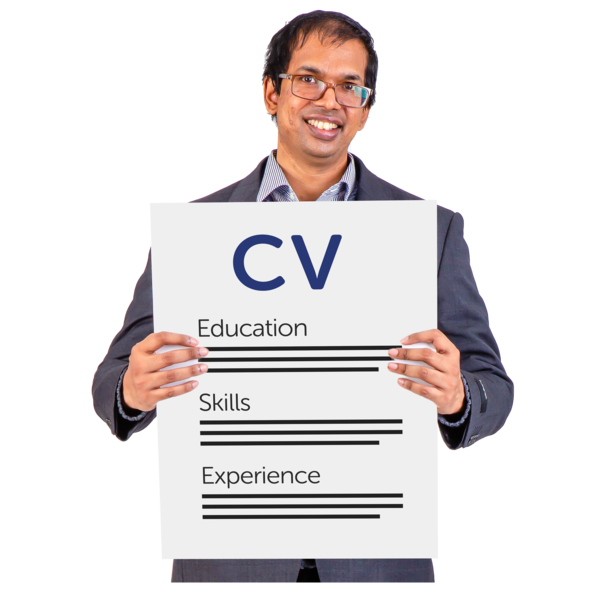 A CV is also called a Curriculum Vitae. It is a document with information about: your skills, your qualifications and any jobs or volunteering you have done. You may have to send a CV when you try to get a job.
, preparing for job Interviews, searching and applying for jobs, understanding
rights
A CV is also called a Curriculum Vitae. It is a document with information about: your skills, your qualifications and any jobs or volunteering you have done. You may have to send a CV when you try to get a job.
, preparing for job Interviews, searching and applying for jobs, understanding
rights
 Rights are the things everyone should be allowed to do like have a say, or go to school.
and responsibilities at work)
Rights are the things everyone should be allowed to do like have a say, or go to school.
and responsibilities at work)
- Understanding the workplace
(i.e.; understanding your wage A wage is the money you get for doing a paid job.
slip, health and safety at work,
equality
A wage is the money you get for doing a paid job.
slip, health and safety at work,
equality
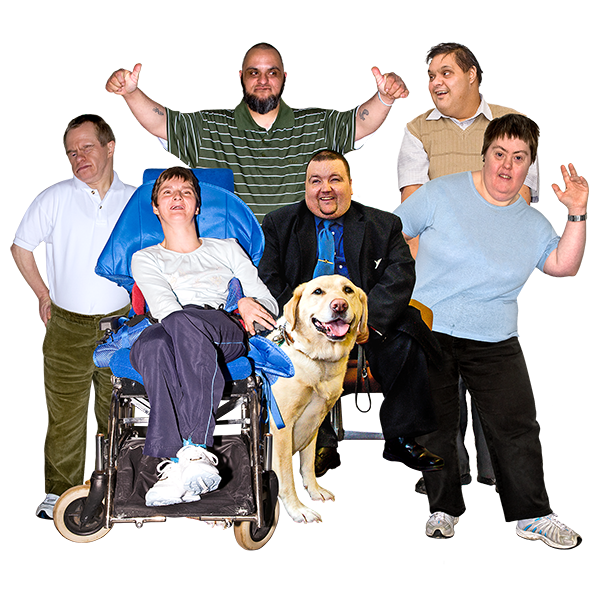 Equality is when everyone is treated fairly.
and
diversity
Equality is when everyone is treated fairly.
and
diversity
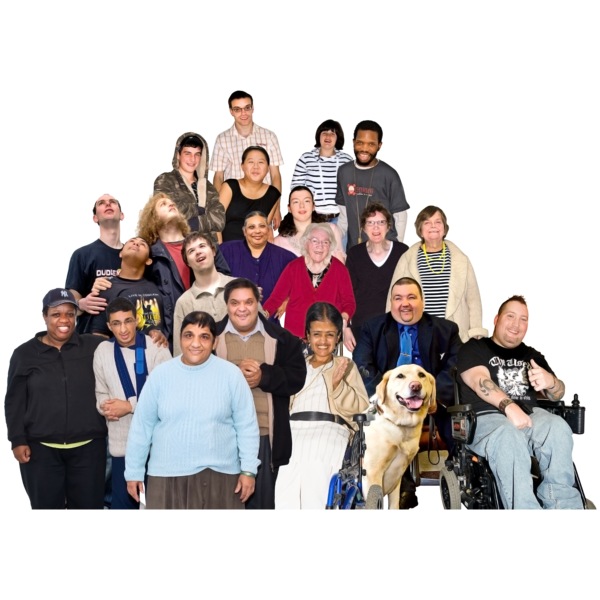 Diversity means people from all different cultures and backgrounds.
)
Diversity means people from all different cultures and backgrounds.
)
- How to cope when things go wrong
(i.e.; developing resilience, travel training, dealing with stress, healthy eating and keeping fit, communication skills)
We're looking for more funding partners across England and Wales to help us deliver skills and training to more people with learning disabilities and autism.
Head Start
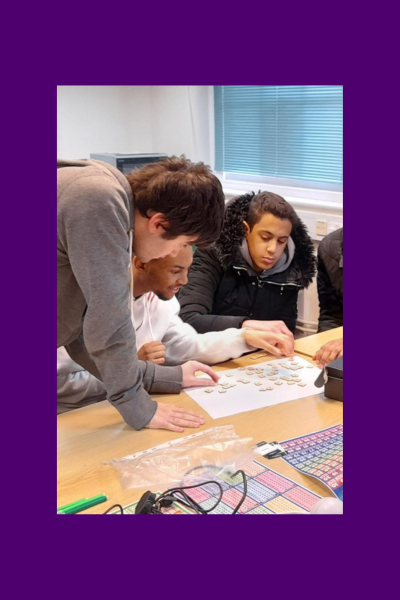 |
Head Start provides young people in special educational needs and disabilities (SEND) schools with an intensive introduction to skills for the workplace and the world of work.
The programme, developed by Mencap in partnership with schools, local authorities and young people, responds to the challenge around the lack of, or in some cases; absence, of employment support for pupils in special schools. This contributes to disparities in employment outcomes for people with learning disabilities, with only 4.8% currently in work.
Head Start is designed to last for a full academic year, with Mencap caseworkers working closely with participating children with special educational needs and disabilities (SEND) schools to design a bespoke action plan, with activities that complement and enhance their existing curricula.
Head Start activities, which may feature in action plans, include:
- Workshops
(i.e.: understanding employment, building aspirations around employment, introducing CV's and understanding Supported Internships)
- Employer engagement
(i.e.: events with multiple employers, guest speaker visits, site visits and work experience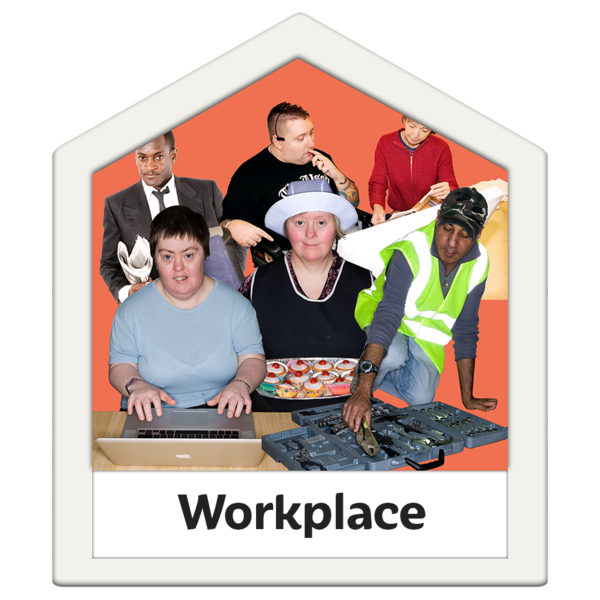 Work experience is when you try out a job to help you learn new skills.
)
Work experience is when you try out a job to help you learn new skills.
)
- Individual support
(i.e.: CV building, vocational profiling, travel training and in-work support)
- Family liaison
(i.e.: open days, engagement events and direct contact around work experience placements)
We're looking for more schools and funding partners across England and Wales to help us deliver Head Start to more people with learning disabilities and
autism
 Autism is a disability. Autistic people find it difficult to understand what other people think and feel. They also find it difficult to tell people what they think and feel. Everyone with autism is different.
.
Autism is a disability. Autistic people find it difficult to understand what other people think and feel. They also find it difficult to tell people what they think and feel. Everyone with autism is different.
.
Right Start
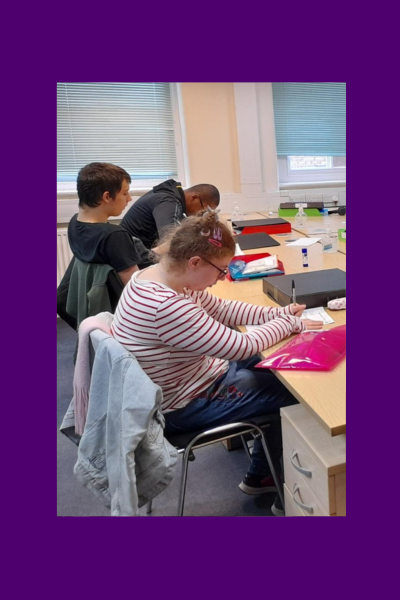 |
Right Start has been developed by Mencap in partnership with schools, local authorities and young people, because of the challenges around the lack of exposure to employment support pupils with SEND typically receive in school.
We work with local authorities to identify suitable schools, who we partner with to identify learners for the programme. In a single local authority area, we look to deliver Right Start to nine cohorts of eight to ten learners over the course of a year.
Right Start is a 10-week programme of activities delivered against the Gatsby Benchmarks which can be planned according to the specific needs of schools and learners.
Mencap caseworkers support learners to:
- Assess skills for work.
- Identify roles and sectors of interest.
- Explore ways to search for jobs.
- Develop a CV.
- Write a cover letter.
- Search for jobs online.
- Stay Safe online.
- Learn about interviews.
- Practice interviews.
- Interact with employers i.e.; visiting a workplace and/or welcoming employer representatives to the school.
Evaluation:
Learners are asked to complete pre-programme and post-programme surveys to measure the impact of Right Start. These surveys have been co-designed with people with a learning disability in an
accessible
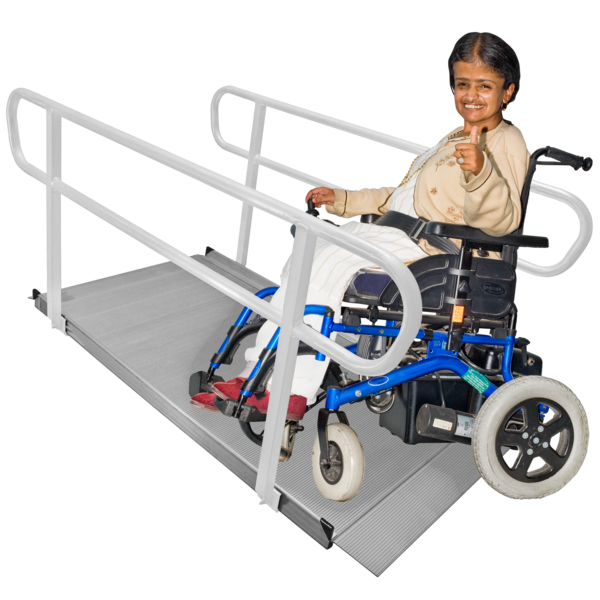 Accessible means something is easy for people to use or join in with. For example: Accessible writing means the writing is easy to read and understand.
format.
Accessible means something is easy for people to use or join in with. For example: Accessible writing means the writing is easy to read and understand.
format.
We're looking for more schools and funding partners across England and Wales to help us deliver Right Start to more people with learning disabilities and autism.
Employ Me NEET
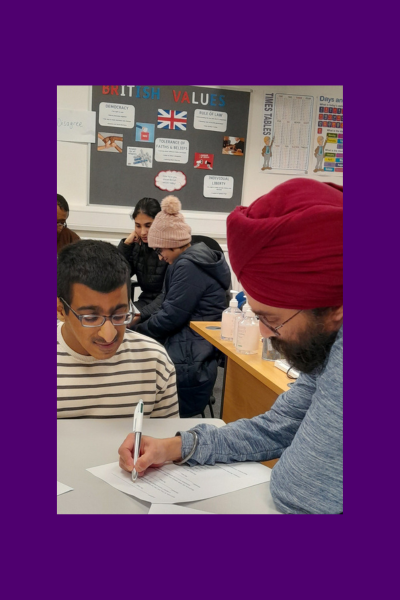 |
Employ Me NEET offers employment support for young people aged 16-24 with learning disabilities or autism who are, or are at risk of becoming; 'Not in Employment, Education or Training' (NEET).
People with learning disabilities face a higher likelihood of becoming NEET, with 30% of 16–24 year-olds who are not in employment, education or training having a disability, compared to 9% who do not.* Our Employ Me NEET programme responds to this problem.
Employ Me NEET is a year-long academic programme that can be delivered either to:
- Young people in school with a learning disability or autism at risk of becoming NEET.
- Young people with a learning disability or autism in the
community
 A community is the people and places in an area.
who are already NEET.
A community is the people and places in an area.
who are already NEET.
For young people still in school
We work with up to ten young people at risk of becoming NEET in one to two schools identified by the relevant local authority.
We develop a plan with schools, identifying specific individuals to work with, and agree targets for each. Caseworkers then develop individual engagement plans with each young person which include key stakeholders, engagement activities, target setting, review meetings and
transition
 Transition means changing from one thing to another. Transition sometimes means things like when you change from having children's social care to adult social care.
planning.
Transition means changing from one thing to another. Transition sometimes means things like when you change from having children's social care to adult social care.
planning.
The activities could be held individually or as group sessions, and some may take place away from the school to test environmental factors’ contribution to NEET-related issues.
For NEET young people in the community
We will work with local authorities to identify up to ten NEET young people with SEND needing outreach support in their community.
Our caseworkers develop individualised plans to engage with each young person through individual and group activities. If possible, some sessions will be delivered jointly with individuals at risk of becoming NEET who are still in school, so the two cohorts may provide motivation to each other to remain in/return to education.
We also identify suitable community assets (i.e.; religious/cultural groups, fitness classes, and social activity groups/clubs) to further support engagement.
We're looking for more schools and funding partners across England and Wales to help us deliver Employ Me NEET to more people with learning disabilities and autism.
Get in touch to offer your support
*ONS Labour Force Survey, 2017
Job coaching
 |
Mencap partners with education providers who deliver supported internship programmes, to deliver job coaching. We are adept at recruiting and training highly skilled job coaches to work with young people with SEND in a wide range of different job roles.
Our job coaches:
- Provide tailored support to learners like travel training.
- Support learners with the completion of in-work tasks, gradually reducing support to ensure their
independence
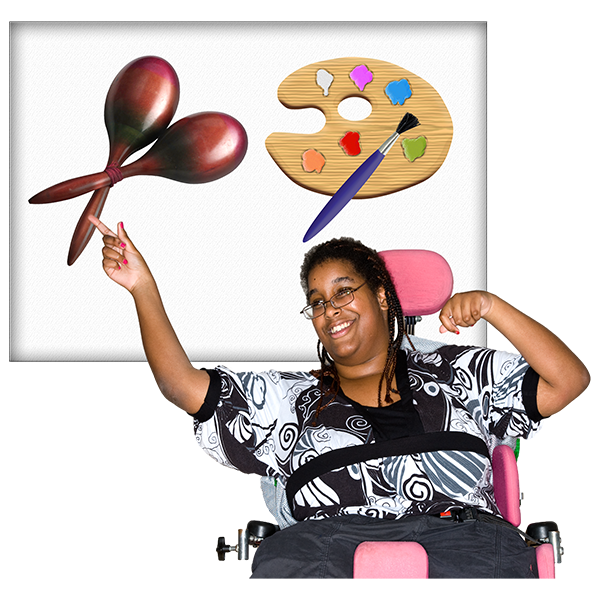 Independence means doing things on your own. Making your own choices.
in the workplace.
Independence means doing things on your own. Making your own choices.
in the workplace. -
Advocate
 An advocate is a person who can help you have your say. An advocate can speak up for you if you find it hard.
with employers on learners’ behalf to ensure reasonable adjustments are made as required/appropriate e.g., later start times, job carving.
An advocate is a person who can help you have your say. An advocate can speak up for you if you find it hard.
with employers on learners’ behalf to ensure reasonable adjustments are made as required/appropriate e.g., later start times, job carving.
